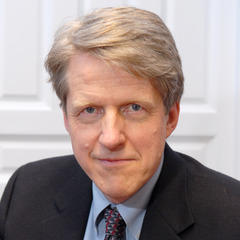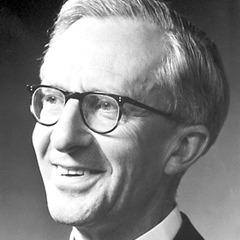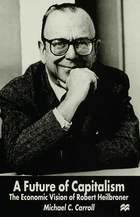Richard Whately Quotes
Curiosity is as much the parent of attention, as attention is of memory.
Francis Bacon, Richard Whately (1858). “Essays: With Annotations by Richard Whately”, p.491
Richard Whately (1854). “Essays (second Series) on Some of the Difficulties in the Writings of the Apostle Paul: And in Other Parts of the New Testament”, p.18
Men are like sheep, of which a flock is more easily driven than a single one.
Richard Whately (1856). “Thoughts and Apophthegms: From the Writings of Archbishop Whateley”, p.251
To teach one who has no curiosity to learn, is to sow a field without ploughing it.
Francis Bacon, Richard Whately (1858). “Essays: With Annotations by Richard Whately”, p.491
The power of duly appreciating little things belongs to a great mind.
Richard Whately (1856). “Selections from the Writings of Dr. Whately”, p.43
It is the neglect of timely repair that makes rebuilding necessary.
Richard Whately (1856). “Thoughts and Apophthegms: From the Writings of Archbishop Whateley”, p.71
Richard Whately (1839). “Essays on Some of the Dangers to Christian Faith”, p.335
Richard Whately (1856). “Thoughts and Apophthegms: From the Writings of Archbishop Whateley”, p.49
Persecution is not wrong because it is cruel; but it is cruel because it is wrong.
Richard Whately (1856). “Essays [third Series] on the Errors of Romanism Having Their Origin in Human Nature”, p.144
The first requisite of style, not only in rhetoric, but in all compositions, is perspicuity.
Richard Whately (1858). “Elements of Rhetoric: Comprising an Analysis of the Laws of Moral Evidence and of Persuasion : with Rules for Argumentative Composition and Elocution”, p.300
Richard Whately (1856). “Thoughts and Apophthegms: From the Writings of Archbishop Whateley”, p.244
If all our wishes were gratified, most of our pleasures would be destroyed.
Richard Whately (1856). “Thoughts and Apophthegms: From the Writings of Archbishop Whateley”, p.297
Richard Whately (1856). “Thoughts and Apophthegms: From the Writings of Archbishop Whateley”, p.22
Honesty is the best policy; but he who is governed by that maxim is not an honest man.
'Apophthegms' p. 219
Richard Whately (1856). “Thoughts and Apophthegms: From the Writings of Archbishop Whateley”, p.245







